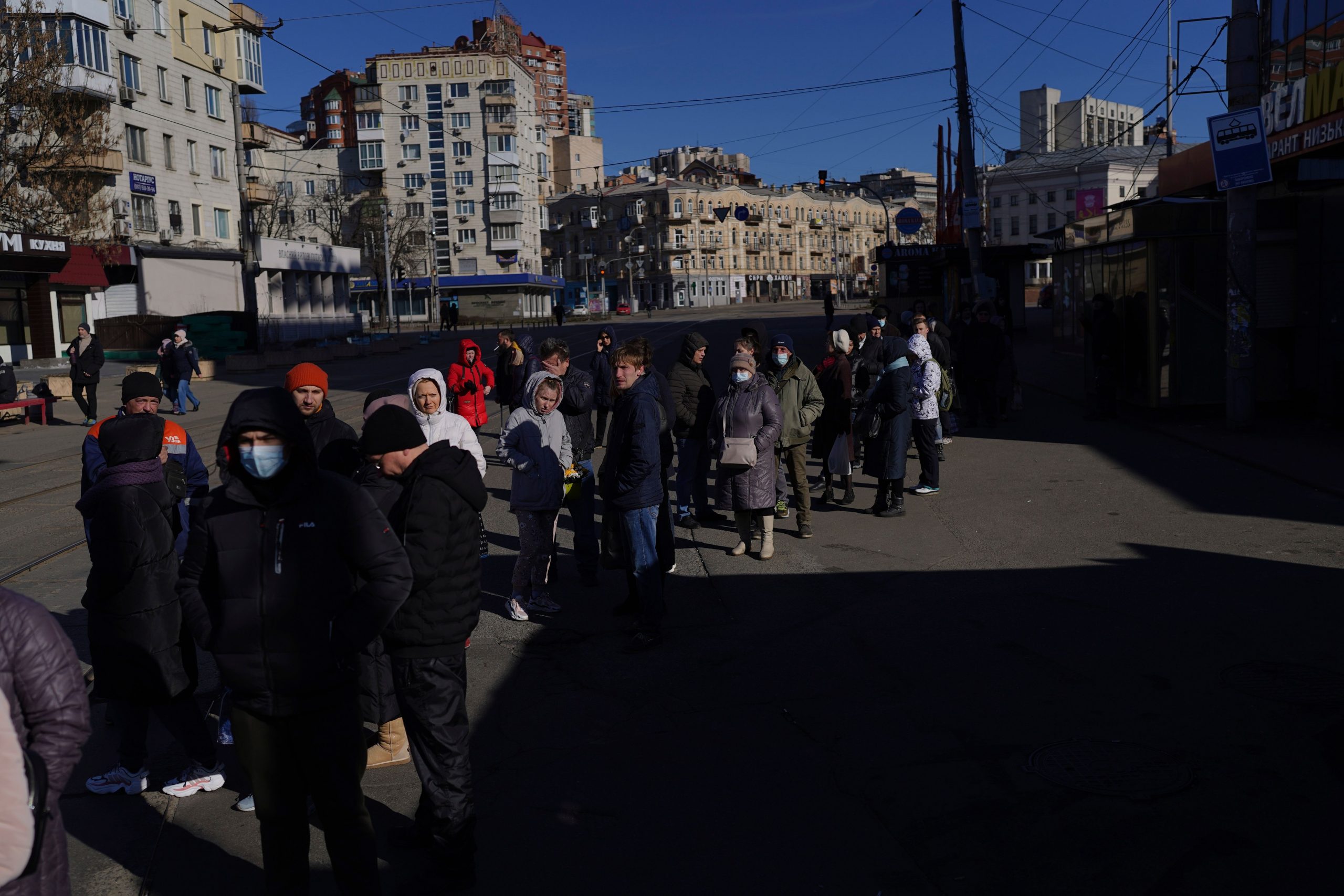Ukrainian
troops slowed Russia’s advance on key cities, at least for now, while a
Ukrainian delegation arrived at the border with Belarus on Monday for talks
with Russian officials, though prospects looked uncertain at best.
Also Read: Roman Abramovich leading peace talks between Russia, Ukraine in Belarus: Report
European
Union defence ministers were also to meet, to discuss how to get weaponry they
have pledged into Ukraine.
Meanwhile,
Western sanctions triggered by the invasion sent the ruble plummeting, leading
Russians to line up at banks and ATMs.
Also Read: Why is Antonov AN-225, world’s biggest cargo aircraft, in news?
The
Russian military assault on Ukraine went into its fifth day after Russian
President Vladimir Putin ordered his nuclear forces put on increased alert,
ratcheting up tensions yet further.
What is happening on the ground?
Kyiv’s
outgunned but determined troops slowed Russia’s advance and held onto the
capital and other key cities — at least for the time being.
Also Read: Ukraine civilians can ‘freely’ leave Kyiv, says Russian army
Explosions
and gunfire that have disrupted life since the invasion began last week
appeared to subside around Kyiv overnight. Long lines formed outside supermarkets
Monday as residents were allowed out of bomb shelters and homes for the first
time since a curfew imposed Saturday.
Exact
death tolls are unclear, but Ukraine’s president says at least 16 children have
been killed and another 45 wounded, among hundreds, perhaps thousands, of other
casualties. Millions have fled homes or the country.
Also Read: Russia hikes key rate to 20% to support ruble, tells firms to sell FX
U.S.
officials say they believe the invasion has been more difficult, and slower,
than the Kremlin envisioned, though that could change as Moscow adapts. The
British Defense Ministry said Monday that the bulk of Putin’s forces are about
30 kilometres (20 miles) north of Kyiv, their advance having been slowed by
Ukrainian forces.
Is
there any chance for diplomacy?
That’s
hard to tell. Ukrainian and Russian delegations met Monday on Ukraine’s border
with Belarus but it was unclear what, if anything, those talks would yield.
Also Read: Ukraine crisis: A look at India’s revised COVID guidelines for evacuees
Ukrainian
President Volodymyr Zelenskyy’s office said Kyiv’s delegation would demand an
immediate cease-fire.
While
Ukraine sent its defense minister and other top officials, the Russian
delegation is led by Putin’s adviser on culture — an unlikely envoy for ending
the war and a sign of how Moscow views the talks. It wasn’t immediately clear
what Putin is seeking in the talks or from the war itself.
Also Read: On Russia-Ukraine conflict: Dalai Lama says war is outdated, calls for dialogue
Western
officials believe Putin wants to overthrow Ukraine’s government and replace it
with a regime of his own, reviving Moscow’s Cold War-era influence. His
comments Sunday raised fears that the invasion of Ukraine could lead to nuclear
war, whether by design or mistake.
The
U.N.’s two major bodies — the 193-nation General Assembly and the more powerful
15-member Security Council — are holding separate meetings Monday.
Also Read: Where are Ukraine’s paralympic athletes? Absence at Beijing triggers concern
The
Security Council gave a green light Sunday for the first emergency session of
the General Assembly in decades. It will give all U.N. members an opportunity
to speak about the war Monday and vote on a resolution later in the week.







